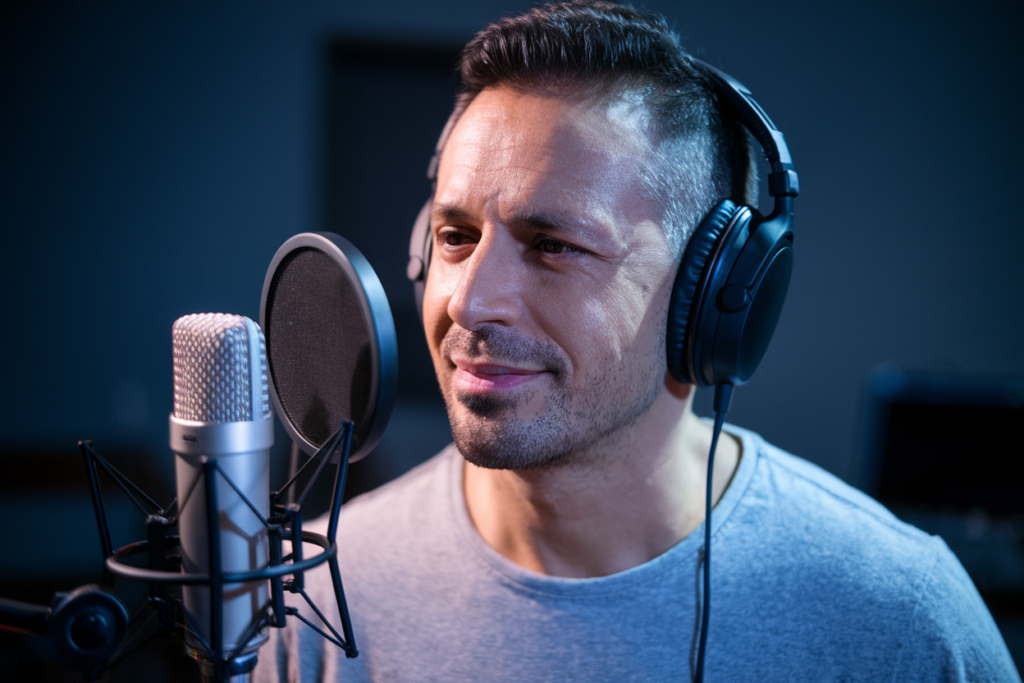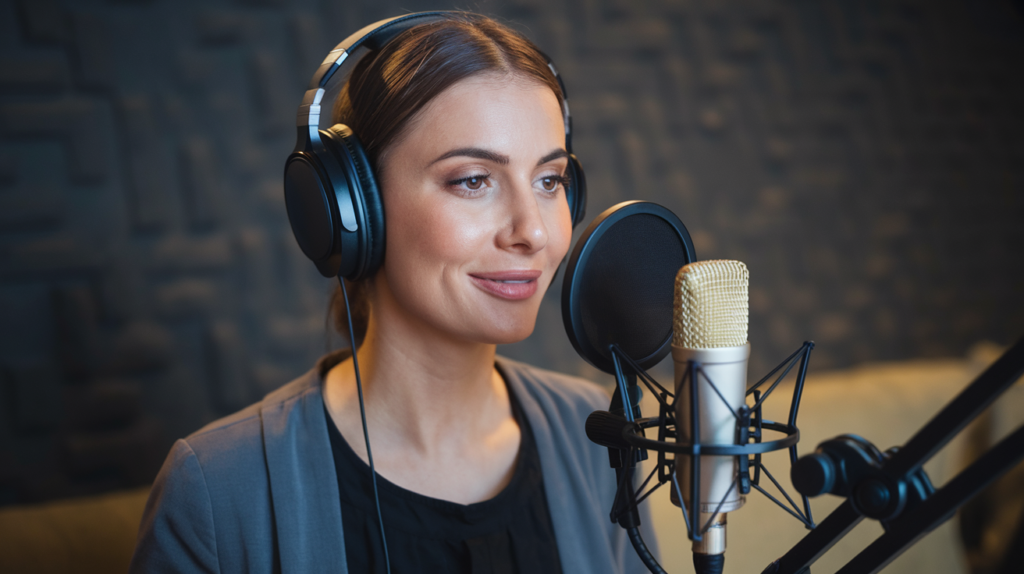Key Takeaways
- Understanding Localization: Effective localization goes beyond translation; it requires a deep understanding of Turkish culture, humor, and emotional resonance to connect with local audiences.
- Cultural References Matter: Incorporating local customs, popular figures, and culturally relevant humor enhances relatability and engagement in video content for Turkish viewers.
- Language Nuances are Key: Utilize idiomatic expressions and conversational language to create an authentic tone that resonates with Turkish speakers while selecting voice talent familiar with regional accents.
- Adaptation Over Direct Translation: Focus on adapting content rather than direct translation to maintain the emotional impact and clarity of your message across cultures.
- Leverage Tools and Local Experts: Use CAT tools, machine translation, and hire local experts such as translators and cultural consultants to ensure effective adaptation of video scripts for the Turkish market.
- Testing & Cultural Sensitivity: Gather feedback from native speakers through testing methods like focus groups or A/B testing to refine messaging while being mindful of cultural sensitivities.
Ever wondered how to make your video content truly resonate with audiences in Turkey? Localizing video scripts for Turkey isn’t just about translation; it’s about capturing the essence of culture, humor, and emotion that speaks directly to Turkish viewers.
Understanding Localization
Localization is essential when adapting video scripts for Turkish audiences. It involves more than just translation; it requires a deep understanding of cultural nuances and viewer expectations.
Importance of Localization
Localization shapes how your content connects with the audience. Culturally relevant messages foster engagement, leading to better retention rates. By localizing, you ensure that humor, references, and emotions resonate with viewers in Turkey. This approach enhances relatability and builds trust, which are crucial for effective communication.
Elements of Video Scripts
Effective video scripts for Turkey include several key elements:
- Cultural References: Incorporate local customs or popular culture to make content relatable.
- Language Variations: Use idiomatic expressions familiar to Turkish speakers.
- Tone and Style: Match the tone to the audience’s preferences—more formal or casual based on context.
- Voiceover Considerations: Select voice talents who understand regional accents and can convey emotions authentically.
These elements not only enhance the viewing experience but also ensure that your message comes across clearly and effectively.
Localizing Video Scripts for Turkey
Localizing video scripts for Turkey requires attention to cultural and linguistic details. It’s not just about translating words; it’s about creating a connection with your audience.
Cultural Considerations
Cultural references play a crucial role in localization. Incorporating elements that resonate with Turkish viewers enhances relatability. For instance, using local traditions and popular figures can foster engagement. Humor is another vital aspect—what’s funny in one culture might fall flat in another. Understanding the nuances of Turkish humor ensures your content strikes the right chord. Additionally, respecting social norms and values strengthens trust with your audience.
Language Nuances
Language nuances significantly impact how messages are received. Familiar idiomatic expressions make content feel more natural and relatable to viewers in Turkey. Using conversational language rather than formal jargon helps create an authentic tone, which resonates better with audiences. When selecting voice talent, consider those who understand these linguistic subtleties and can convey emotions effectively through their delivery. A voice actor who can adapt their style will enhance the overall effectiveness of your localized video script, ensuring it communicates clearly while engaging viewers on an emotional level.
Translation Techniques
Effective translation techniques are crucial for localizing video scripts specifically for Turkish audiences. This process goes beyond simply converting words from one language to another; it involves adapting content to resonate with cultural and linguistic nuances.
Direct Translation vs. Adaptation
Direct translation often fails to capture the essence of a message, leading to misunderstandings or losing emotional impact. Instead, adaptation focuses on rephrasing content in a way that aligns with cultural context and audience expectations. For instance, humor that works in English might not translate well into Turkish without modification. Adapting jokes or references makes them relatable and engaging for viewers. Think about how familiar cultural touchpoints can enhance your script’s effectiveness.
Utilizing Local Dialects
Incorporating local dialects enriches the authenticity of your video scripts. Turkey has diverse regional accents and expressions that can deepen connections with specific audiences. Using terms or phrases common in certain areas can make your content feel more personal and genuine. When selecting voice talent, consider artists who understand these nuances—someone familiar with local dialects can bring an extra layer of relatability to your project.
By thoughtfully applying these translation techniques, you ensure your video scripts don’t just speak to Turkish audiences—they resonate deeply, fostering engagement and connection.
Tools and Resources
You can enhance the localization of video scripts for Turkish audiences through various tools and resources designed to streamline translation and cultural adaptation processes.
Software for Translation
Utilizing advanced software can significantly improve your translation efforts. Look for platforms that support not only text translation but also cultural context adjustments. Some popular options include:
- CAT Tools: Computer-Assisted Translation (CAT) tools help maintain consistency in terminology across projects.
- Machine Translation: While useful for initial drafts, always pair this with human oversight to ensure nuanced understanding.
- Localization Management Platforms: These systems allow you to manage multiple languages and regions efficiently, providing a cohesive workflow from creation to final product.
By integrating these technologies into your process, you gain efficiency while ensuring that the translated content resonates well with Turkish audiences.
Hiring Local Experts
Engaging local experts is crucial when localizing video scripts. They bring invaluable insights about cultural references, humor, and regional dialects. Consider these key points when selecting professionals:
- Voiceover Talent: Choose voice artists or actors who understand the nuances of Turkish culture and language variations. Their expertise helps convey emotions authentically.
- Cultural Consultants: Collaborating with consultants familiar with Turkey’s customs ensures your script aligns with audience expectations.
- Translators with Experience: Seek translators experienced in media localization specifically tailored for video content; they grasp how to adapt scripts effectively.
Investing time in hiring the right local experts enhances authenticity in your message while improving viewer engagement.
Best Practices
Localizing video scripts for Turkish audiences requires careful attention to detail and cultural nuances. Implementing best practices ensures your content resonates deeply and engages effectively.
Testing and Feedback
Testing is crucial in the localization process. Prioritize gathering feedback from native speakers to identify potential issues or areas for improvement. Conduct focus groups with your target audience to gauge their reactions to the localized content. This approach helps refine messaging, ensuring that humor, tone, and style align with local preferences. Additionally, consider A/B testing different versions of your video scripts to see which elements resonate more strongly with viewers.
Keeping Cultural Sensitivity in Mind
Cultural sensitivity plays a vital role in localization efforts. Recognize that certain themes or expressions might not translate well across cultures, leading to misunderstandings or even offense. Familiarize yourself with local customs, traditions, and taboos before finalizing your script. Emphasizing respect for Turkish culture enhances relatability and fosters a positive connection with the audience. Incorporating local references can also elevate authenticity; this practice demonstrates an understanding of what matters most to viewers in Turkey.
Incorporating insights from voice talent familiar with Turkish culture strengthens emotional connections within your videos. Their expertise helps convey subtleties that enhance overall engagement while maintaining clarity throughout the message delivery process.
By following these best practices, you can create compelling video scripts that truly resonate with Turkish audiences while navigating cultural intricacies skillfully.
Conclusion
Localizing video scripts for Turkey is a powerful way to connect with your audience on a deeper level. By embracing cultural nuances and ensuring that your content resonates emotionally, you can create more impactful messages.
Remember to focus on familiar idioms and humor that Turkish viewers appreciate while selecting voice talent who can convey these subtleties effectively. Engaging local experts will also guide you in navigating cultural intricacies, enhancing relatability.
Ultimately, the effort you put into localization pays off in viewer engagement and trust. When your content truly reflects the culture it targets, you pave the way for meaningful connections that keep audiences coming back for more.
Frequently Asked Questions
What is video script localization for Turkish audiences?
Localization for Turkish audiences involves adapting video scripts to resonate with cultural nuances, emotions, and humor unique to Turkey. It goes beyond translation by ensuring the content feels relatable and familiar.
Why is cultural understanding important in localization?
Cultural understanding is crucial because it shapes how messages connect with viewers. Incorporating local traditions and humor enhances relatability, fostering better engagement and emotional connections with the audience.
How do idiomatic expressions play a role in video scripts?
Using familiar idiomatic expressions creates a more natural tone in video scripts. This approach makes the content relatable, improving viewer retention and overall engagement.
What are effective translation techniques for video scripts?
Effective translation techniques include adaptation rather than direct translation. Adapting content aligns it with cultural contexts and audience expectations, making it easier for viewers to understand and connect emotionally.
Why should I hire local experts for localization?
Hiring local experts ensures that your content reflects authentic insights into Turkish culture and language variations. Their expertise improves the quality of translations and enhances overall viewer engagement.
How can feedback improve localized video scripts?
Gathering feedback from native speakers helps refine messaging by aligning humor, tone, and style with local preferences. Focus groups can be instrumental in testing different versions of scripts to gauge reactions effectively.
What tools can assist in the localization process?
Tools such as Computer-Assisted Translation (CAT) software and localization management platforms streamline the localization process. They help ensure consistency while enhancing collaboration among translators and cultural consultants.
What best practices should I follow when localizing video scripts?
Best practices include paying attention to detail, conducting thorough testing, gathering feedback from native speakers, being culturally sensitive, and incorporating insights from voice talent familiar with Turkish culture to enhance emotional connection.







